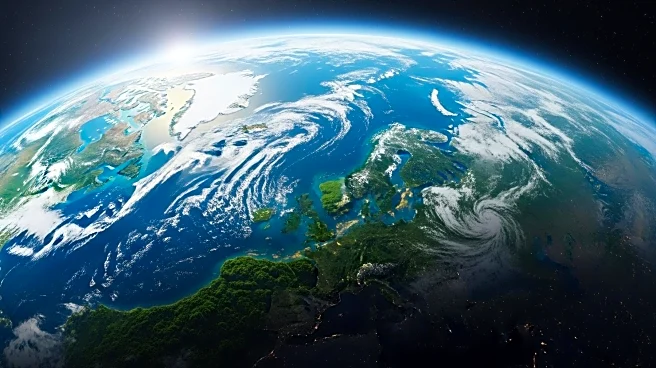What's Happening?
Hundreds of government and business leaders are gathered in New York for a U.N. climate summit, emphasizing the need for stronger national plans to reduce fossil fuel emissions. Despite global efforts, the U.S. has been criticized for rolling back climate policies, marking the largest backslide in history according to Climate Action Tracker. The summit aims to encourage nations to submit updated Nationally Determined Contributions (NDCs) aligned with the Paris Agreement goals, as only a fraction of countries have met the deadline.
Why It's Important?
The summit highlights the urgency of global cooperation in addressing climate change, as rising temperatures and extreme weather events continue to impact vulnerable regions. The U.S. policy rollbacks pose challenges to international climate goals, potentially undermining progress made since the Paris Agreement. The event underscores the importance of maintaining momentum in the transition to renewable energy, which is increasingly seen as economically viable and essential for sustainable development.
What's Next?
As the summit progresses, nations are expected to announce new climate commitments and strategies for reducing emissions. The focus will be on securing international cooperation and funding to support the transition to cleaner energy. The outcome of the summit could influence future climate negotiations and policies, particularly in light of the upcoming COP30 in Brazil. Stakeholders will continue to advocate for stronger action and accountability in meeting climate targets.
Beyond the Headlines
The global push for climate action reflects broader societal shifts towards sustainability and environmental responsibility. The challenges faced by nations in balancing economic growth with climate commitments highlight the complexities of international diplomacy. The summit serves as a platform for dialogue and collaboration, fostering innovation and partnerships that could drive long-term change in energy systems and environmental policies.









